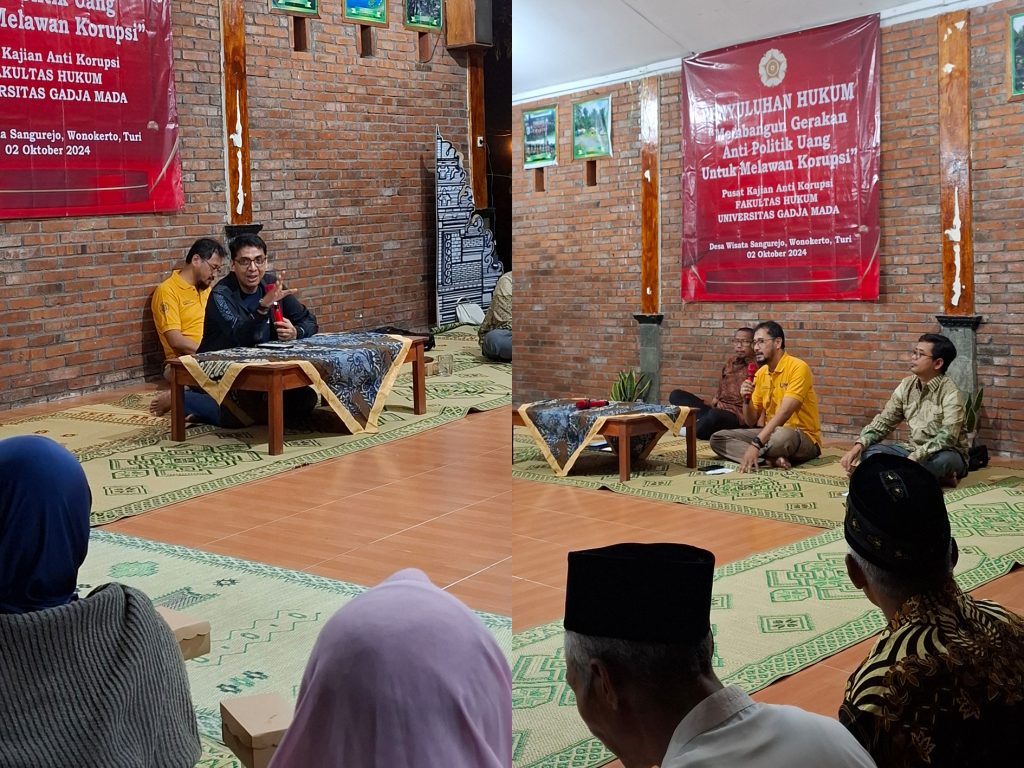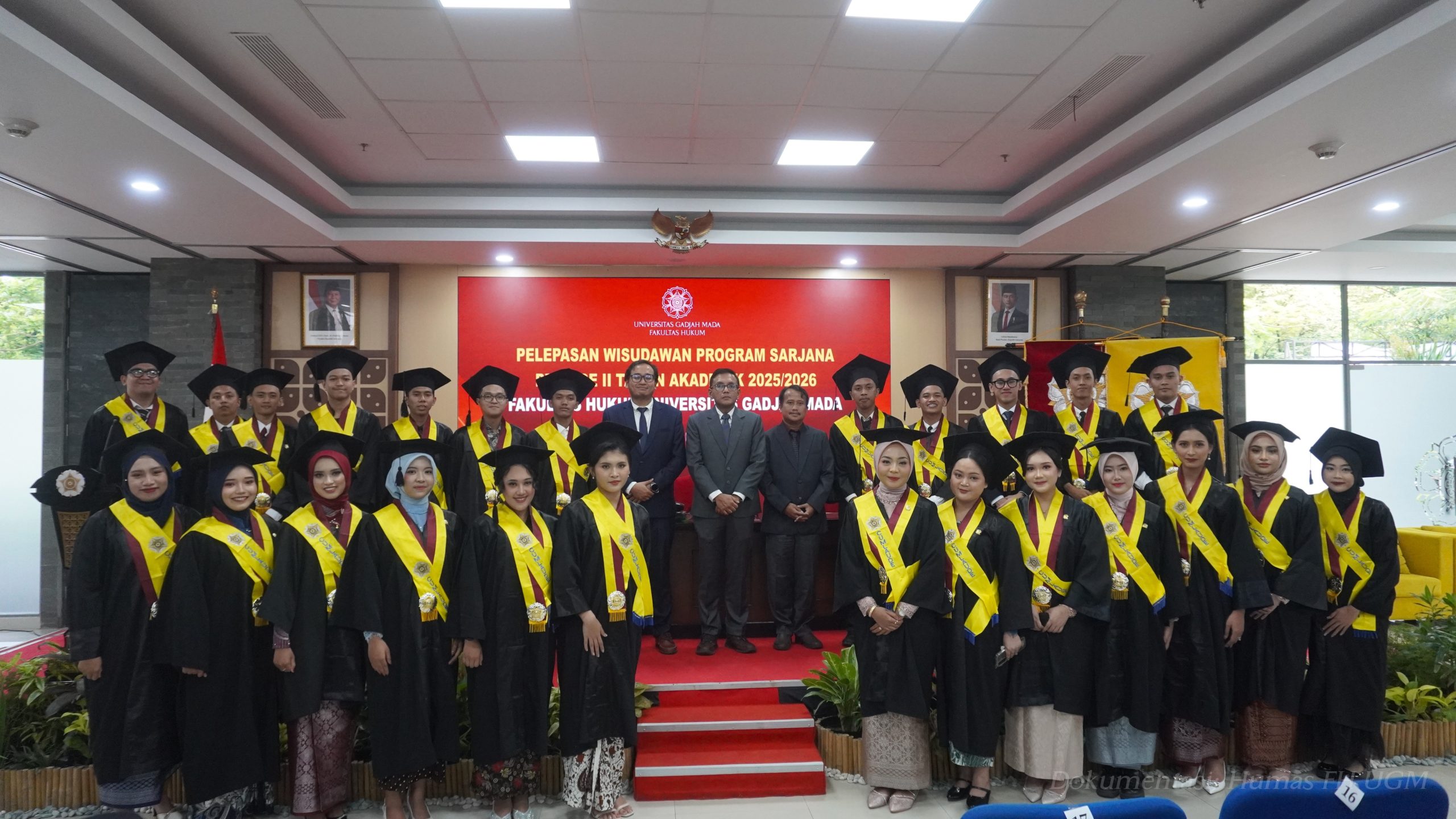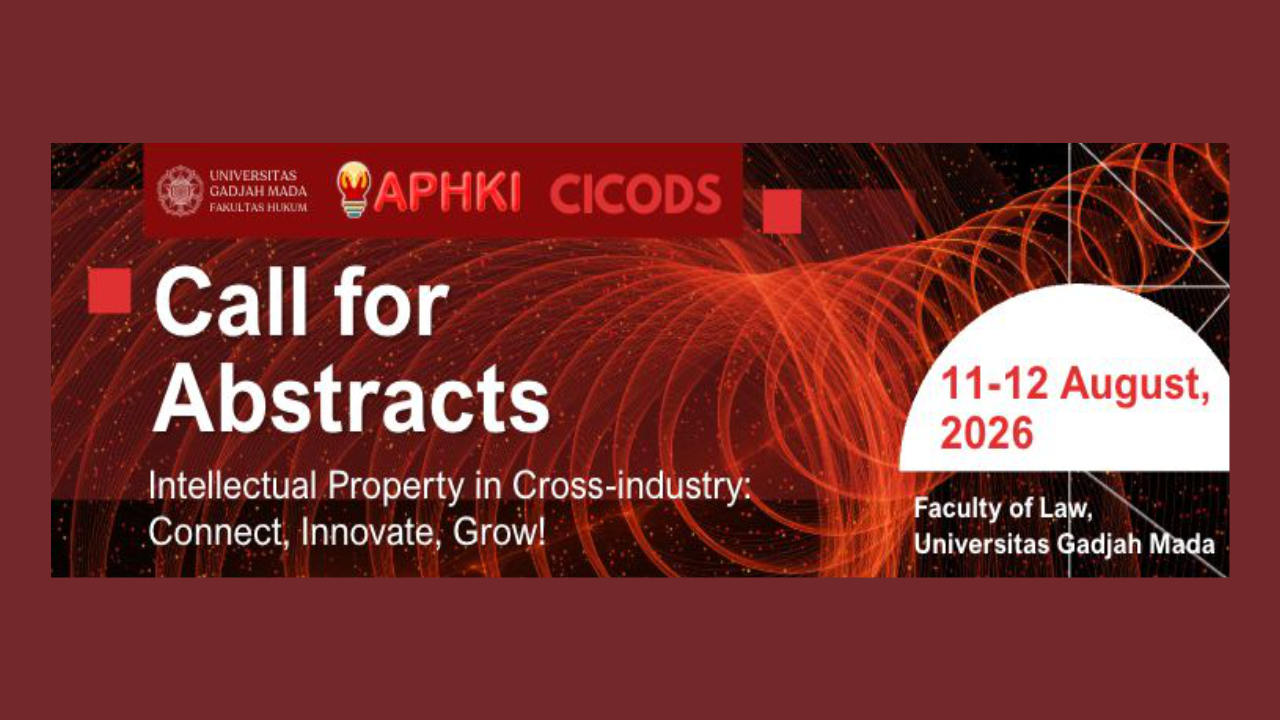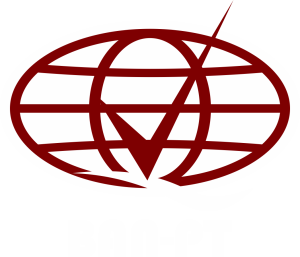The Anti-Corruption Study Center at the Faculty of Law, Universitas Gadjah Mada (PUKAT FH UGM) organized a legal education event titled "Building an Anti-Money Politics Movement to Fight Corruption" on Wednesday (2/10/2024). The event took place at the Sangurejo Tourism Village, Wonokerto, Turi, Sleman, with the aim of enhancing residents' understanding and awareness to resist money politics ahead of the 2024 Regional Elections. This initiative is part of UGM's commitment to fulfilling the university's Tri Dharma, particularly community service
Three speakers from the UGM Faculty of Law participated: Totok Dwi Diantoro, Hasrul Halili, and Zainal Arifin Mochtar.
Totok Dwi Diantoro, who also serves as the Head of PUKAT FH UGM, opened the event by stating that Indonesia ranks third globally in money politics practices, following Uganda and Benin. "Money politics has turned our democratic process into mere logistical competition," Totok noted. He added that money politics degrades elections and inflates the costs of political campaigns, often driving public officials to recover their investments through corrupt means. Therefore, to curb corruption, it is essential to address money politics from the root.
The next speaker, Hasrul Halili, highlighted how money politics undermines political integrity. He shared his experiences teaching integrity to politicians in five cities across Indonesia, noting that upholding integrity is continually hindered by lax ethics in political activities. For Hasrul, being a politician should be a noble profession and not treated as a mere transaction. He emphasized that politicians should serve the people. Unfortunately, money politics creates high political costs, encourages corruption, and forms a vicious cycle that is difficult to break. Hasrul urged people to have strong self-respect, not be easily tempted by small rewards, and recognize that voter support holds significant meaning for the nation's future. Rejecting money politics is, therefore, a step towards breaking the cycle of corruption.
The third speaker, Zainal Arifin Mochtar, discussed the structural elements of corruption in Indonesia and highlighted the risks of normalizing corrupt practices. He noted that while corruption often begins as an individual act, it frequently takes root within organizations, impacting various layers of society. "Money politics not only erodes trust but also strengthens apathy and cynicism in politics," Zainal remarked, referencing surveys indicating that over a third of Indonesians have admitted to participating in or witnessing money politics.
Despite being structured as an educational outreach, the event was not a one-way session. Residents of Sangurejo also shared their experiences with money politics, including the difficulty of refusing bribes and other forms of manipulation during election periods. Sehadi, the Head of Sangurejo Village, stated that the movement against money politics must begin at both the individual and community levels. He shared how his village had agreed to reject "transportation money" from their preferred candidate, although the candidate ultimately distributed money right before the election. This example illustrates the real challenges communities face in resisting money politics. He urged residents to reject money politics and vote for candidates they believe will represent their voices and address their issues.
One of the main objectives of this outreach was to equip participants with knowledge and strategies to identify and combat money politics. The speakers also held discussions and Q&A sessions on how to reject money politics and legal insights on bribery, gratuities, and extortion. Beyond rejecting money politics, the speakers also discussed ways for residents to organize themselves and convey their aspirations to political representatives and leaders without relying on money politics.
The session concluded with the hope of fostering a collective effort to combat money politics in the lead-up to the November regional elections. PUKAT FH UGM hopes this initiative will continue and be implemented in other villages, creating a ripple effect nationwide in raising awareness and resistance against money politics. As Hasrul Halili stated, "Every act of resistance, no matter how small, is a step toward a brighter and corruption-free Indonesia."
Author: Totok Dwi Diantoro (PUKAT FH UGM)


